Measure J has become a focal point of this year’s ballot in Sonoma County. As local farmers and animal rights activists clash, the divide between the two opposers grows deeper every day.
If passed, Measure J would restrict the amount of livestock farms are allowed to house and would call for the liquidation of 21 CAFOs (Certified Animal Feeding Operations) in Sonoma County. This list includes the heavily scrutinized Petaluma Poultry farm, owned by parent company Perdue Farms.
The measure is the first of its kind in the United States and could be a massive blow to California’s agriculture industry, which yielded a whopping $12.89 billion in 2023 just from dairy products and cattle and calves.
According to the U.S Environmental Protection Agency, California is home to 1,274 CAFOs as of 2023. Sonoma County houses 21 of those CAFOs. If this measure is passed, it is believed by the proponents that it will spread to other counties and effectively bring an end to factory farming in the United States.
Though these CAFOs have been publicly scrutinized by animal rights activists, local farmers insist that they rely on these businesses to keep their own farms afloat. Many local farmers like Bronte Edwards, owner of Rainbow Family Ranch and member of nonprofit Community for Food and Family, rely on these CAFOs to supply feed for their animals. Without their presence, Edward’s believes many local farms could go out of business.

According to Measure J proponent Samantha Eachus, all 21 large CAFOs in Sonoma County contain around three million animals. The Code of Federal Regulations, or CFR, states that in order to be considered a large CAFO a farm has to contain at least 700 mature dairy cows or 1,000 or more cattle other than mature dairy cows or veal calves.
Edwards explained that many of these CAFOs are not mass factory-like feeding operations focusing on fattening up animals to a cruel extent, but family owned and operated farms. “One of the things that is really misunderstood is they’re calling a lot of these historic family farms factory farms, and what we see when we look at the size of farms statewide, our farms in Sonoma County are about a third of the size. The size isn’t really meeting that factory level,” she said.
Edwards went on to criticize the measure’s credibility, citing that the organization behind the bill is located in Berkeley, a Bay Area city with little to no agricultural operations. “Direct Action Everywhere is the group that primarily wrote this measure. Their goal is to have no animal agriculture by 2024, The reason why they’ve picked Sonoma County is because we are very progressive,” she said. “We’re very connected to where our food comes from and our producers are some of the most climate smart agriculturalists in the world. They think if they can pass this measure here, that it will have a domino effect across the United States.”
In a September interview with Eachus, she described feeling as if the opposition of Measure J did not take the organizations claims of animal abuse on the part of the 21 CAFOs seriously. She attacked the opposition for allegedly using stock images in their ads, while the opposition has fired back claiming that their campaign photos, which depict images of scared chickens missing feathers, were taken illegally when activist Direct Action Now broke into Petaluma Poultry chicken barnes. Both feel as if the other is at their throats.
“What I feel is happening with this group is they’re trying to stereotype a lot of folks in the agricultural community here. I’ve been called a January Six-er,” said Edwards, a queer farmer herself.
Edwards did express understanding of Measure J activists and their goal to create animal and environmentally safe farms as well as the group’s belief that banning CAFOs could boost local farmer’s sales, “I feel like they’re trying to argue that it’s going to help small producers like myself. But the reality is, somebody like me is never going to be able to compete with development companies that want to buy these 1000s of acres of land that have been in families for over 100 years,” Edwards said.
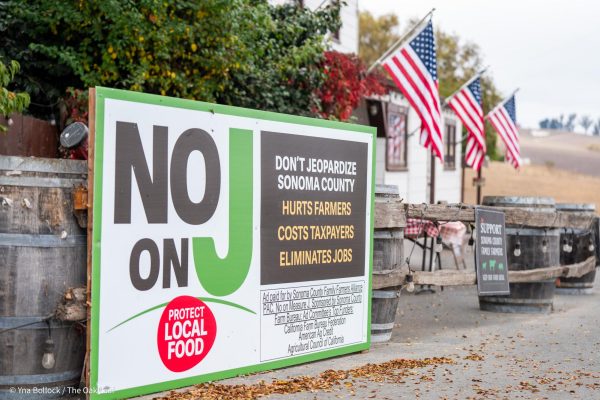
Being a curious first generation farmer with a background in animal science, Edwards checked out 21 CAFOs before making her decision to advocate for No on Measure J, “I’ve been to all these farms[the 21 CAFOs affected by the measure], and I’ve looked at it through an environmental lens and an animal science lens, because I want to make sure I’m backing up my beliefs too,” they said. “What I can tell you is, these animals are super healthy. They’re in excellent quality care. They have veterinarians coming in almost every week.”
Edwards explained that in order for operations this size to adhere to existing agricultural and animal well being laws, these CAFOs have third party auditors that come inspect their operation in order for them to obtain and maintain their humane certifications and organic certifications. She expressed her belief that although the people behind this measure are well intentioned, the CAFOs in this area are not worth shutting down if it will cause harm to smaller local operations.
Edwards predicted that many local farms, including theirs, will come to an abrupt end if Measure J passes, “I feel like a lot of producers that are first gen like me, that are smaller, I don’t think we’d make it through the year because our margins are already so thin.”
According to the No on Measure J website, the opposition currently has 59 local officials supporting their efforts to stop this ordinance. Reps. Mike Thompson and Jared Huffman, as well as several members of local city and town councils appear on the website’s list of supporters. No on J is endorsed by a slew of local dairy operations, including Clover Sonoma, and Straus Family Creamery. The Sonoma County Democratic Party and the Sonoma County Republican Party also oppose the measure.
“I don’t believe the initiative, as it’s written, deals with the issues that they claim to address. I think agriculture is such an important part of our community, we need to be real careful about how we mess with their ability to make a living and provide food,” Thompson said in an interview with Oak Leaf reporters.
As the election creeps closer, No on J signs continue to dot farmland and city streets alike. The outcome of this seemingly small time measure could change California’s economy and culture forever.
“I think we should defeat the measure,” Thompson said.



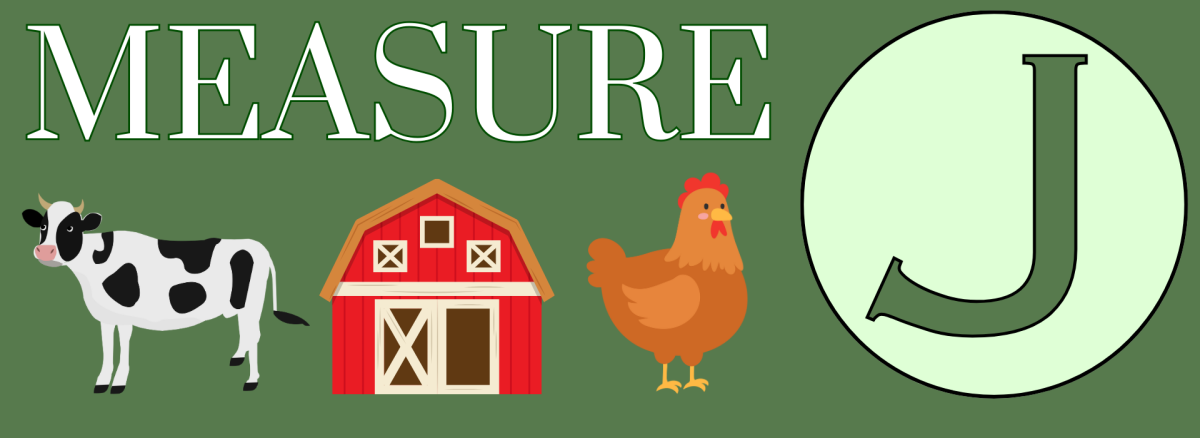
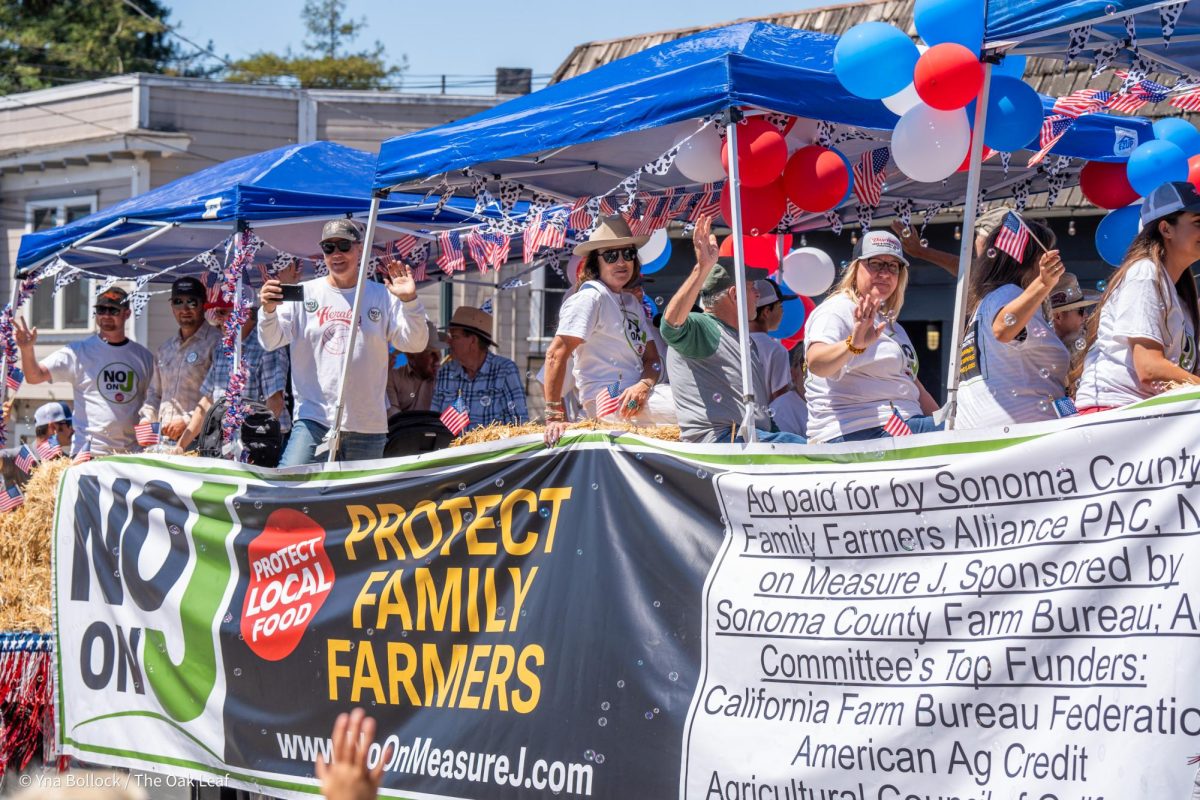

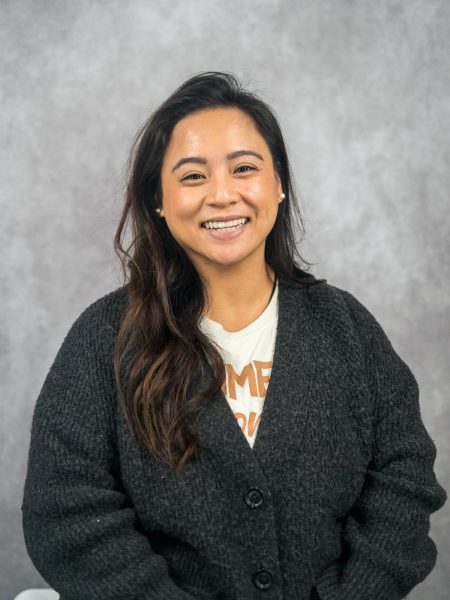
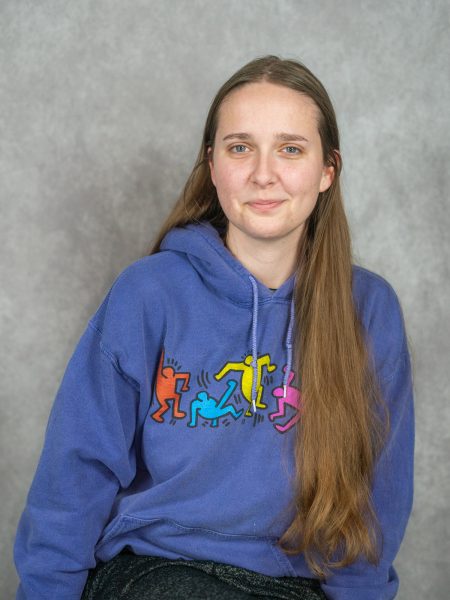
Ella • Oct 22, 2024 at 2:50 pm
Measure J should have simply been a ban on large scale poultry confinement facilities (eg. 82,000 or more egg-laying chickens).
They are an abomination in every possible way.